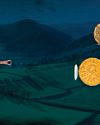
0n 26 November 1922, when Howard Carter reported what he could make out in the gloom of a dusty chamber in the Valley of the Kings, a new phase of Egyptomania began. For more than 100 years, since Napoleon's Egyptian campaign at the turn of the 19th century, Europeans and North Americans had been enthralled by the architecture, art, design and dress of this ancient civilisation.
Carter's discovery was different, though. "Everywhere the glint of gold!" he famously recalled of the moment he first saw the wonders of Tutankhamun's tomb. The scene was set for an international fixation with this gilded young pharaoh who presided over a glittering court of fabulous wealth. Tutankhamun seduced the world, further sensationalising the popular image of Egypt at its height during the 18th Dynasty (c1550-1295 BC).
Monuments such as the temples at Luxor and Karnak in southern Egypt had already stunned visitors and archaeologists alike. They spoke of a Bronze Age imperialist state possessed of astonishing confidence, led by chariot-borne pharaohs firing off a fusillade of arrows at their cowering foes.
Yet look beyond the dazzling architecture, the power and the riches, and there's a darker tale to be told about ancient Egypt's so-called golden age. It's a story of wealth, glory and political power being monopolised by a tiny, spectacularly self-entitled elite, while everyone else was left to scrabble around in the dirt.
Dynamic forces
This story is from the {{IssueName}} edition of {{MagazineName}}.
Start your 7-day Magzter GOLD free trial to access thousands of curated premium stories, and 9,000+ magazines and newspapers.
Already a subscriber ? Sign In
This story is from the {{IssueName}} edition of {{MagazineName}}.
Start your 7-day Magzter GOLD free trial to access thousands of curated premium stories, and 9,000+ magazines and newspapers.
Already a subscriber? Sign In

The Victorians' cocaine habit
In the 19th century, a magic new drug took the medical community by storm, riding a wave of scientific endeavour.

Tower of light and dark
The gold-tipped monument that towers above Bath is an architectural jewel and a visceral reminder of the evils of slavery. PAUL BLOOMFIELD visits the newly restored haven built by the wealthy outcast William Beckford

How Britain found its frequency
When radios first appeared in British homes in the early 20th century, one thing soon became clear: domestic life would never be the same again. Beaty Rubens tracks Britons' reaction to this extraordinary new technology via seven cartoons

There are only a handful of survivors left who can say what happened
I WAS INTERVIEWING AN ALMOST 98-YEAR-OLD man about his memories of the Second World War this week.

THE KING LOST KINGDOM
Battered by the Vikings, outshone by King Alfred, Mercia has long been painted as the also-ran of the Anglo-Saxon world. Yet, writes Max Adams, this mighty Midlands kingdom was at the very heart of the emergence of England

Donald Trump has retaken the US presidency, repeating his vow to 'Make America Great Again'. But he's not the first to wield such a slogan. Back in the 1980s, Ronald Reagan stood for election with the same promise.Did he deliver?
Donald Trump's recurring battle cry \"Make America Great Again!\"- taps into a powerful sense among many Americans that life was better in the old days.

"In times of political volatility, it's more vital than ever that we tell women's stories"
What impact has recent instability around the world had on the study of women’s history? Does our desire for strong female role models risk erasing complexity? And whose lives are still overlooked? Ahead of Women’s History Month, ELLIE CAWTHORNE spoke to three historians about the state of the discipline

Five shocking tales from Britain's royal palaces
Royal residences have been a hotbed of drama, violence and intrigue down the centuries, as Kate Williams reveals

Why, the villagers wondered, were they completely green?
The story of the otherworldly children of Woolpit has long been treated as folklore - but, as John Clark explains, the tale may not be as fanciful as it seems

We are witnessing the biggest gathering of people in world history
I'M SURE, LIKE ME, READERS HAVE BEEN BOTH gripped and saddened this last month by the pictures of India's Kumbh Mela, the biggest pilgrimage in the world.